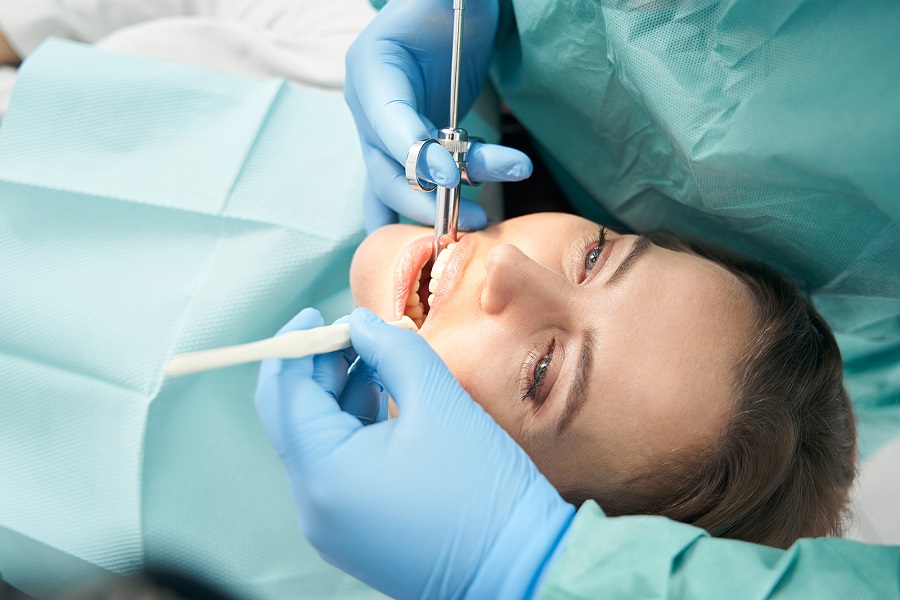Everything There Is to Know About Halitosis Explained
Posted by Steven Lim Joseph Fields Sep 14, 2021

Halitosis is an unpleasant oral condition caused by an unhealthy amount of bacteria in the mouth. The bacteria feed on foods like sugar and protein, producing acid that can damage the teeth and gums. Your Reno dentist will tell you an unhealthy diet usually causes it, but it can also be a symptom of an underlying health condition, such as a deficiency or infection.
Most of the time, it's nothing to worry about, but it can be embarrassing when it interferes with your life, especially if you're having conversations with other people. The thought of it alone probably makes you want to curl yourself up and disappear into thin air.
This article will tackle everything you need to know about halitosis to avoid being in a mortifying situation.
Halitosis Explained
What is Halitosis?
The bacteria that cause bad breath, also called odontogenic, are a group of gram-negative facultative anaerobic bacteria that metabolize protein and amino acids. They cause bad breath by releasing volatile sulfur compounds into the mouth that then interact with the oxygen in the air to form sulfur dioxide, which is exhaled in the form of a foul odor.
They grow in your mouth in between brushings and when food remains trapped between your teeth. It is called plaque. They also produce acid, which eats away at your tooth enamel, making it susceptible to decay and tooth damage.
Halitosis is not an infectious disease, despite what some may tell you. It is also not contagious. It is a chronic condition that can be embarrassing and even cause people to avoid having conversations with you.
What Are the Symptoms of Halitosis?
The first signs you should look out for include a foul taste and smell in your mouth, dry mouth, bad breath, and tooth sensitivity. You might even notice a bad taste in your food. Halitosis can also show up as a bad taste in the back of your throat, a bad taste in your saliva, or stomach pains or chest pains.
What Causes Halitosis?
There are a few factors that contribute to halitosis. It's best to know what causes it so that you can take steps to prevent it from happening in the first place.
- Oral Hygiene
The most important factor in halitosis is poor oral hygiene or the lack of brushing and flossing your teeth. If you have a lot of plaque buildup, it will inevitably lead to bad breath. A good oral hygiene routine will help you avoid this.
- Certain Foods
Certain foods, including onions, garlic, coffee, and smoked or fermented foods, can cause bad breath. These foods produce sulfur-based compounds expelled into the air through your mouth.
Other foods that cause an unpleasant odor include processed meats, such as ham and sausage, containing large amounts of sodium. They cause bad breath through a different chemical process than the other foods mentioned above, and while they are not as common in bad breath-causing foods, they can still bring unpleasant smells.
In addition, spicy foods are also a cause due to the increase in salicylate content, a component of many spicy foods.
- Periodontal Disease
Periodontal disease, also known as gingivitis, is caused by an accumulation of bacterial plaque that causes the gums to become inflamed. Gingivitis can cause bad breath as the bacteria ferment the sugar in the foods you eat.
The gums can swell and pull away from the teeth, causing them to become loose. The bacteria can then enter the bloodstream and travel to the lungs, causing pneumonia. If left untreated, this can lead to tooth loss and tooth decay.
- Odor-Causing Bacteria in the Mouth
When bacteria are present in the mouth for long periods, they can build up to dangerous levels and cause bad breath. They cause plaque formation, which makes the mouth smell and taste bad. Different kinds of bacteria are responsible for bad breath, but the most common are the following:
Staphylococcus Aureus can cause severe gum infections, infections, and abscesses. It can also be responsible for various serious conditions such as pneumonia and lung infections.
Streptococcus is the most common cause of bacterial infections such as strep throat and tonsillitis. It also causes gums to become inflamed.
Pseudomonas is a very common cause of cystitis, sinus infections, and pneumonia. It can also cause bad breath, often found in smokers.
- Dry Mouth
A dry mouth is when the mouth is not producing enough saliva. Saliva keeps the mouth moist, which prevents the growth of bacteria. There are a variety of causes for dry mouth, including a lack of minerals in the body.
Certain medications and alcohol consumption also affect the amount of saliva that the body produces. One of the best ways to alleviate dry mouth is to drink more water, preventing bacteria from growing.
- Tobacco Products
Tobacco products such as cigarettes are bad for your oral hygiene. Nicotine dries out the mouth, and even if you brush every day, it can still cause bacteria to grow. It can also irritate the inside of the mouth, causing them to inflame, swell, and cause bad breath. That is why it is best to quit smoking completely.
In addition to this, these products also contain chemicals that have been linked to a variety of health problems, including cancer.
- A Health Condition
Some health conditions may cause bad breath, such as liver or kidney disease. If you are experiencing any unusual or persistent bad breath, it may signify a more serious health condition that needs to be checked out.
- Improper Cleaning of Dental Prosthetics
Prosthetic appliances such as dentures and crowns have a high risk of developing bacterial infections. Plaque and debris build up on these appliances, creating a breeding ground for bacteria that can become extremely harmful, especially when they are left untreated for long periods.
If you have a prosthetic appliance, make sure to clean it properly. Many people clean their appliances by brushing them, but this method doesn't remove all the bacteria. If your appliances are extremely dirty, you may need to use a denture cleaner to properly clean them. Remember that different types of dental products are available that are specifically designed to clean your appliances, and you must consider choosing from these items.
Treat Halitosis with the Help of Your Reno Dentist
We don't want you to go through the embarrassment of having bad breath. Call our friendly staff at Smile Design Implant Center today to schedule a consultation with us.
Office Hours
MON - THU7:00 am - 4:00 pm
FRI - SUNClosed





